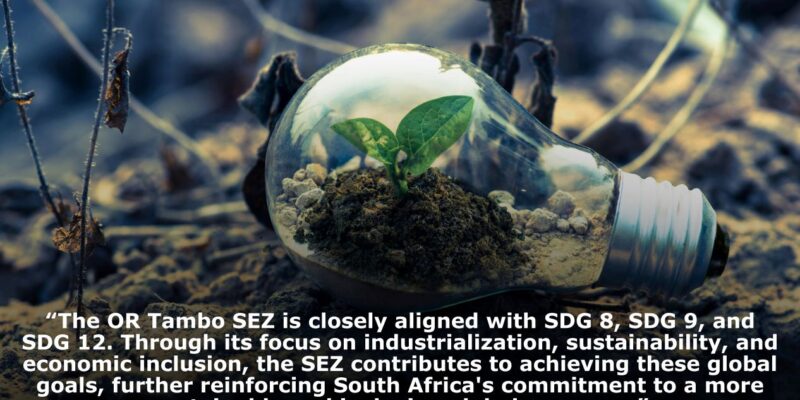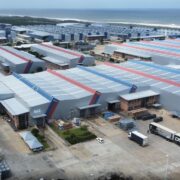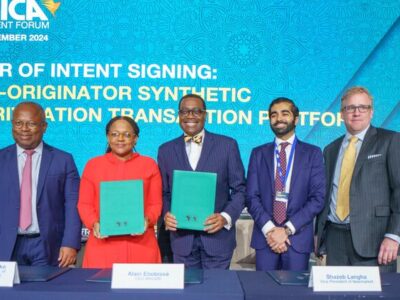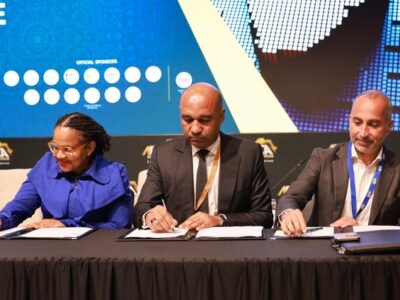
From 01 December 2024, South Africa assumed presidency of the G20 Summit. Held annually under the leadership of a rotating Presidency, the G20 is an international economic cooperation platform that brings together the world’s leading economies to address global economic challenges.
Currently comprising 19 member countries, including South Africa, the G20 collectively represents approximately 85% of global GDP and two-thirds of the world’s population.
Since its inception in 2008, the G20 has convened annually, discussing crucial issues that impact the global economy, such as trade policy, climate change, health crises, and the reform of global governance structures. It serves as a vital forum where the world’s largest economies collaborate to shape global policies, promote economic growth, and tackle pressing challenges.
The most recent G20 Summit, held in Brazil on the 18th-19th November 2024, focused on the theme “Building a Just World and a Sustainable Planet.” Key priorities during this summit included addressing hunger, poverty, and inequality, promoting the three pillars of sustainable development—economic, social, and environmental—and advocating for significant reforms in global governance.
While the summit addressed a range of global crises, including ongoing conflicts, trade tensions, and inequality, its core message was clear: Sustainable Development is paramount. Leaders reaffirmed their commitment to the Paris Agreement, emphasizing urgent action to limit global warming and to reduce greenhouse gas emissions rapidly. They also committed to increasing climate finance for developing countries and supporting energy transitions to cleaner, more sustainable sources.

The summit also highlighted the importance of fostering international trade as a key driver of inclusive growth and poverty reduction, with a commitment to a fair and rules-based trading system, particularly through the World Trade Organization (WTO).
South Africa’s G20 theme
Building on the achievements of Brazil’s G20 Presidency, South Africa has indicated that it is committed to continuing the momentum of the Summit during 2024, focusing on inclusive economic growth, food security, and the role of artificial intelligence in sustainable development.
As the first African country to hold the G20 Presidency, South Africa aims to place the development priorities of the African continent and the Global South at the heart of the G20 agenda. To that end, the theme of South Africa’s presidency will centre on Solidarity, Equality, and Sustainability (visit https://g20.org/).

According to a statement released by the Presidency, this theme reflects the country’s commitment to promoting global solidarity (particularly in regions affected by conflict) and advocating for vulnerable countries facing pandemics and health emergencies.
South Africa is committed on advancing this as well as the Sustainable Development Goals (SDGs), with a strong emphasis on ensuring that these goals remain a priority for the next five G20 Presidencies and that no one is left behind in the global development process.
OR Tambo SEZ: Connecting G20 goals to local growth
The OR Tambo SEZ (ORTIA SEZ) is strategically designed to drive economic growth, create jobs, and enable investment, all while adhering to its mandate of attracting local, regional and global investment and promoting industrial development in South Africa.
This mandate, aligned with the country’s broader development goals, is significantly enhanced by South Africa’s emphasis on the G20 theme of Solidarity, Equality, and Sustainability.
1. Economic growth and job creation: Meeting the mandate of industrialization
The primary mandate of the ORTIA SEZ is to attract investment, stimulate industrialization, and create sustainable employment opportunities.
By providing tax incentives, infrastructure support, and logistical advantages, the SEZ encourages local and foreign companies to set up operations, thus contributing to the broader goal of economic development.
In line with South Africa’s G20 focus on economic equality, the ORTIA SEZ aims to drive inclusive economic growth by creating job opportunities. With its focus on sectors such as manufacturing of various products, the SEZ creates entry points for marginalized communities to participate in economic activities within the various value chains, whether upstream or downstream.
 The OR Tambo SEZ plays a pivotal role in supporting women entrepreneurs by providing a platform for trade, investment, and industrialization. Credit: OR Tambo SEZ
The OR Tambo SEZ plays a pivotal role in supporting women entrepreneurs by providing a platform for trade, investment, and industrialization. Credit: OR Tambo SEZ
In this way inequality can be reduced by ensuring that the benefits of industrialisation and growth are more widely distributed across the population.
2. Fostering local and global partnerships: Ensuring solidarity
A central theme of South Africa’s G20 Presidency is solidarity – building stronger partnerships among countries and communities; this not only refers to political cooperation but also speaks to building economic bridges between countries.
The ORTIA SEZ contributes directly to this by providing a platform for both local and international businesses to collaborate, engage, and invest. This has been demonstrated in the current operations of the SEZ, known as the ORTIA Precinct 1, where several local companies have formed partnerships with international and foreign companies in the mineral beneficiation sector.
By acting as a gateway for trade and investment, the SEZ enhances South Africa’s participation in the global economy while also ensuring that local companies are competitive on the world stage.
 King Philippe of Belgium at the opening of the Pluczenik Factory at OR Tambo SEZ in March 2023.
King Philippe of Belgium at the opening of the Pluczenik Factory at OR Tambo SEZ in March 2023.
3. Promoting sustainable business practices
South Africa’s G20 Presidency theme of sustainability is deeply embedded in the operations and future development of the ORTIA SEZ.
One of the key objectives of the SEZ is to attract green investment, promote energy-efficient manufacturing, and support industries that contribute to sustainable development. By focusing on sectors such as green hydrogen, clean technologies such as fuel cells, and environmentally friendly manufacturing, the ORTIA SEZ directly contributes to South Africa’s goal of a greener economy.
Furthermore, the future expansion of the SEZ’s infrastructure is designed to be environmentally sustainable, with energy-efficient buildings, waste management systems, and a focus on resource conservation (circular economy).
The SEZ is open for business and has investment opportunities available in its expansion phase.
This not only aligns with global sustainability goals but also ensures that green industries are supported and can thrive in South Africa. As South Africa champions climate action through the G20, ORTIA SEZ can serve as a model for integrating economic growth with environmental stewardship.
4. Ensuring economic equality
Another critical mandate of the ORTIA SEZ is to help reduce economic and social inequality. Through its investments in infrastructure, skills development, and job creation, the SEZ creates opportunities for communities and businesses that have been historically left behind. By focusing on inclusive growth, the SEZ provides youth, women, and black industrialists with opportunities to participate in the economy.
 Isabella Jewellers & Refiners at OR Tambo SEZ is a prime example of women-led success in the trade and investment sector. Credit: OR Tambo SEZ
Isabella Jewellers & Refiners at OR Tambo SEZ is a prime example of women-led success in the trade and investment sector. Credit: OR Tambo SEZ
The SEZ can also serve as an avenue for addressing debt crises and financial vulnerabilities in developing regions by creating new economic activities and diversifying revenue streams through exploitation of targeted value chains.
This approach supports South Africa’s commitment to fighting global inequality as emphasized in its G20 leadership, ensuring that both SMMEs and multi-national businesses benefit from shared success.
Conclusion
All the above efforts firmly support the Sustainable Development Goals (SDGs). South Africa’s G20 Presidency highlights the importance of these goals, and the ORTIA SEZ is closely aligned with them, particularly in areas such as decent work and economic growth (SDG 8), industry, innovation, and infrastructure (SDG 9), and responsible consumption and production (SDG 12).
Through its focus on industrialization, sustainability, and economic inclusion, the SEZ contributes to achieving these global goals, further reinforcing South Africa’s commitment to a more sustainable and inclusive global economy.
The SEZ is open for business and has investment opportunities available in its expansion phase. For more information, visit: www.ortambosez.co.za
Contact OR Tambo SEZ
To facilitate a focused conversation with the OR Tambo SEZ team about your business objectives, please send the team a brief introduction:












Comments